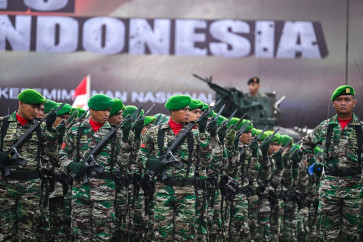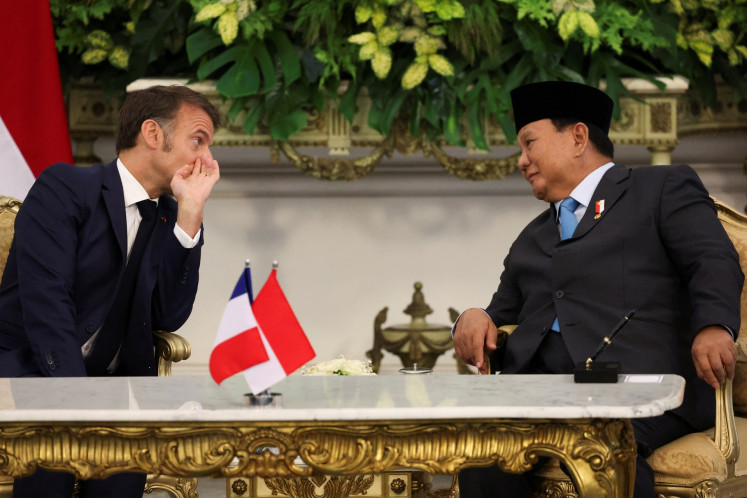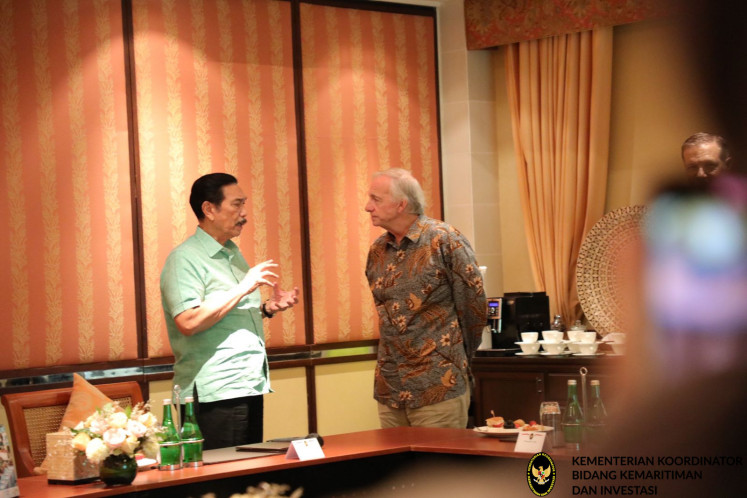Agricultural land sought for nomadic Kubu tribes
The life of the nomadic Kubu tribespeople currently occupying areas along the Trans-Sumatra highway on the border of Jambi and South Sumatra provinces has caused concern among conservationists
Change text size
Gift Premium Articles
to Anyone

T
he life of the nomadic Kubu tribespeople currently occupying areas along the Trans-Sumatra highway on the border of Jambi and South Sumatra provinces has caused concern among conservationists.
Being displaced by the conversion of forest into concession areas has forced them to live a beggar’s life along the highway, depending on other people’s charity as they do not have fields of their own to cultivate.
Temenggung Kitab, for example, is now living in Simpang Margoyoso, Sarolangun regency, at the upper stretch of the highway with other members of his tribal group as the forest he used to live in has been converted into oil palm plantations.
“We don’t have any other place to go. We were expelled when we entered the oil palm plantation,” said Temenggung recently.
To support his family, he hunts for pig in the forest just like many other members of the group do and sells his catch in the nearest market.
Sometimes he earns Rp 200,000 (US$22.4) a week. Other times he earns nothing, meaning that his family has nothing to eat. “We need land to cultivate to make a living,” he said.
Conservation group KKI Warsi Jambi anthropologist Robert Aritonang said this was a serious problem and needed serious action to resolve. “We cannot let them live like that along the highway,” he said.
He urged the authorities to properly address the problem, for example by giving the displaced tribes fields to cultivate to earn a living. He also underlined the importance of doing so carefully especially because the tribes were not used to living in permanent residences. “They need time to reside like villagers,” he said.
He added that by giving them land, the authorities would also help them to eventually settle and leave their nomadic life behind.
The fate of some 3,000 members of Kubu tribes living inside the Bukit Duabelas National Park (TNBD) and Bukit Tigapuluh National Park (TNBT) is somewhat better as their presence in the parks has been guaranteed by the authorities.
In the parks they are able to cultivate rubber plantations, or hompongan as it is locally called, which also function as a buffer zone for the parks. They can also practice their belangun (nomadic life) tradition in the national park when a member of their family dies.









